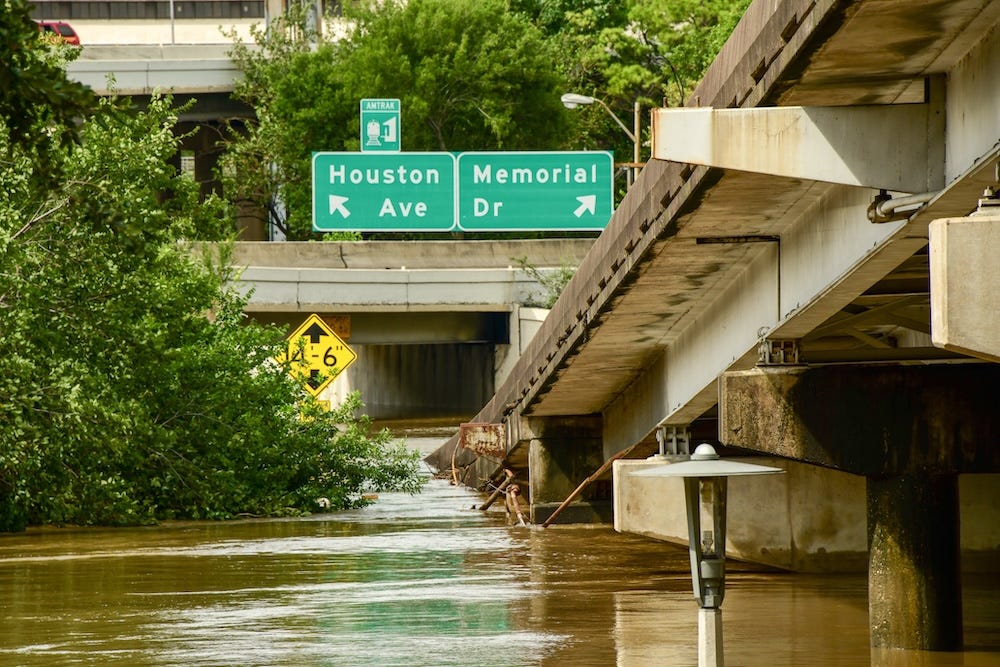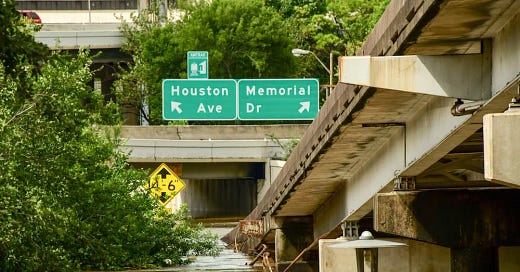There’s a lot coastal cities can do to adapt to climate impacts. Here’s a place to start.
Coastal city leaders around the U.S. must face reality: Climate change is here, and the threats to their citizens are very real and only getting worse.
Good morning,
I’m writing from rain-soaked New York City, where flash floods have inundated highways and subway stations, and a fleet of drones were deployed to alert residents living in flood-prone areas. At the same time, rainfall from Tropical Storm Debby—which is slowly making its way up the east coast—could lead to damages in excess of $10 billion, on par with a category 3 or 4 hurricane.

Flood events like these are becoming all too common, illustrating just how unprepared our coastal cities are to manage the triple threat of sea level rise, extreme storms, and impervious surfaces.
Worsening climate impacts are not just a concern for the “coastal elite.” Over 65 million people (20% of the U.S. population) live in coastal cities, and risks from increasingly unnatural disasters and sea level rise disproportionately affect those who are already considered socially vulnerable. Our safety and well-being depend on coastal cities radically accelerating climate adaptation efforts. But this can’t happen without good data to inform policymaking.
To help coastal cities meet this moment, we released our Climate Readiness Framework with more than 70 policy recommendations for managing climate risks, supporting green job creation, and building healthier and more equitable communities.
To facilitate the implementation of these recommendations, we recently launched an open-access resource hub with hundreds of vetted resources—from the latest case studies and datasets, to example legislation and policy memos—for practitioners working towards more resilient coastal cities.
Tools like our framework and resource hub are needed because, despite the outsized role of coastal cities in supporting U.S. cultures and economies—and the potential for their governments to lead on implementing climate solutions—interventions in many places have been reactive instead of anticipatory and preventative. Compounding this problem is the fact that many cities are using climate projections that are inconsistent with the latest science, leading to inaccurate risk assessments. For example, right now, more than half of coastal communities across the country are making decisions based on data that underestimates sea level rise.
Rather than developing isolated, piecemeal climate plans, cities—especially those that are smaller and potentially under-resourced—can use our hub to advance proactive, comprehensive policy based on up-to-date research and examples of what’s already working. Crucially, our hub hosts materials to help local governments avoid replicating past harms by better engaging with and supporting frontline communities most impacted by coastal hazards.
Two months in and the 2024 hurricane season—which the National Oceanic and Atmospheric Administration predicted would have the greatest number of named storms on record—has already resulted in billions in damages and left millions without power. Coastal city leaders around the U.S. must face reality: Climate change is here, and the threats to their citizens are very real and only getting worse.
The good news is, there are a host of adaptation measures that coastal cities can implement right now to provide a better future for their residents. Funding from the Inflation Reduction Act and the Infrastructure Investment and Jobs Act is still available, and the grim truth is that the best time to garner support for adaptation investments is during a disaster.
Coastal cities have many opportunities to increase near- and long-term climate-preparedness, rather than continuing the cycle of picking up the pieces after disaster strikes. Doing so requires sharing knowledge, experience, and science in order to secure a more climate resilient future for all communities.
Sheetal Shah,
Program Director
P.S. Does your organization create work that supports climate-ready coastal cities? Please email info@urbanoceanlab.org with a link to your publication, and we’ll see if it’s a fit for the resource hub.


